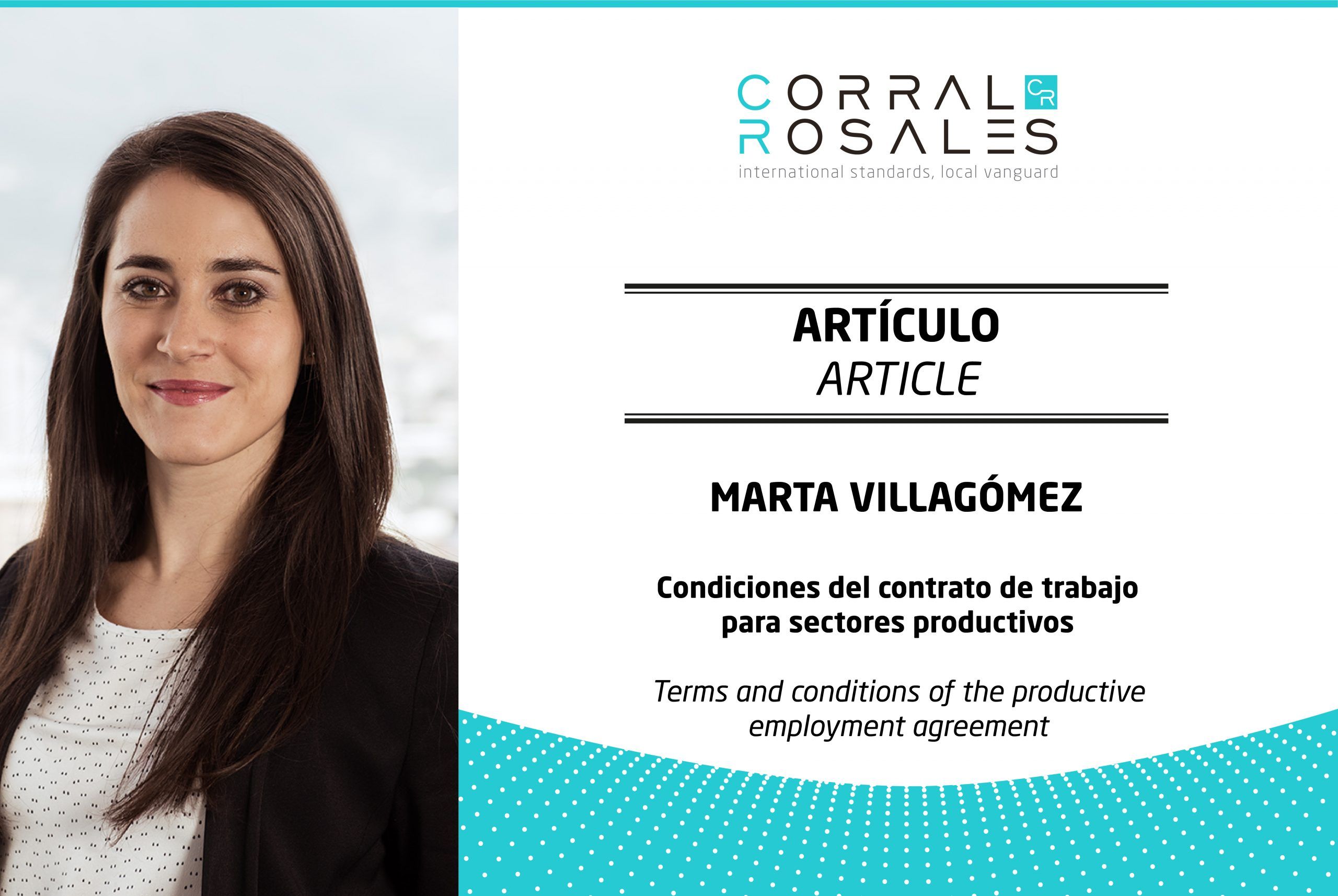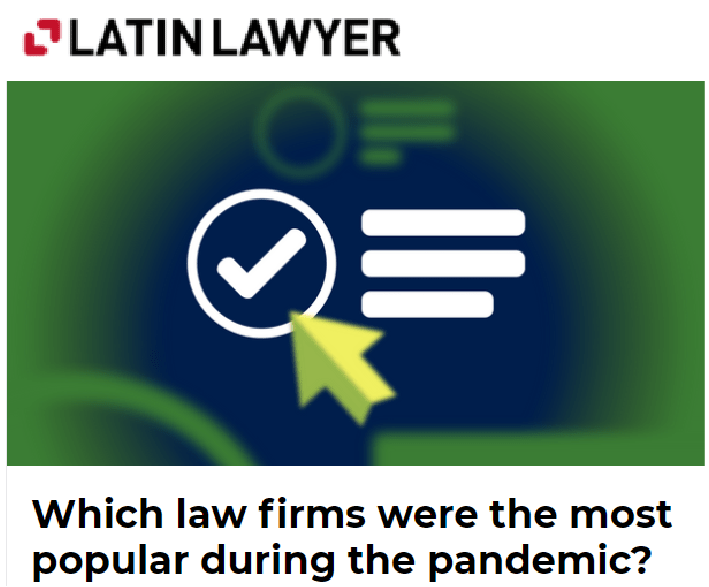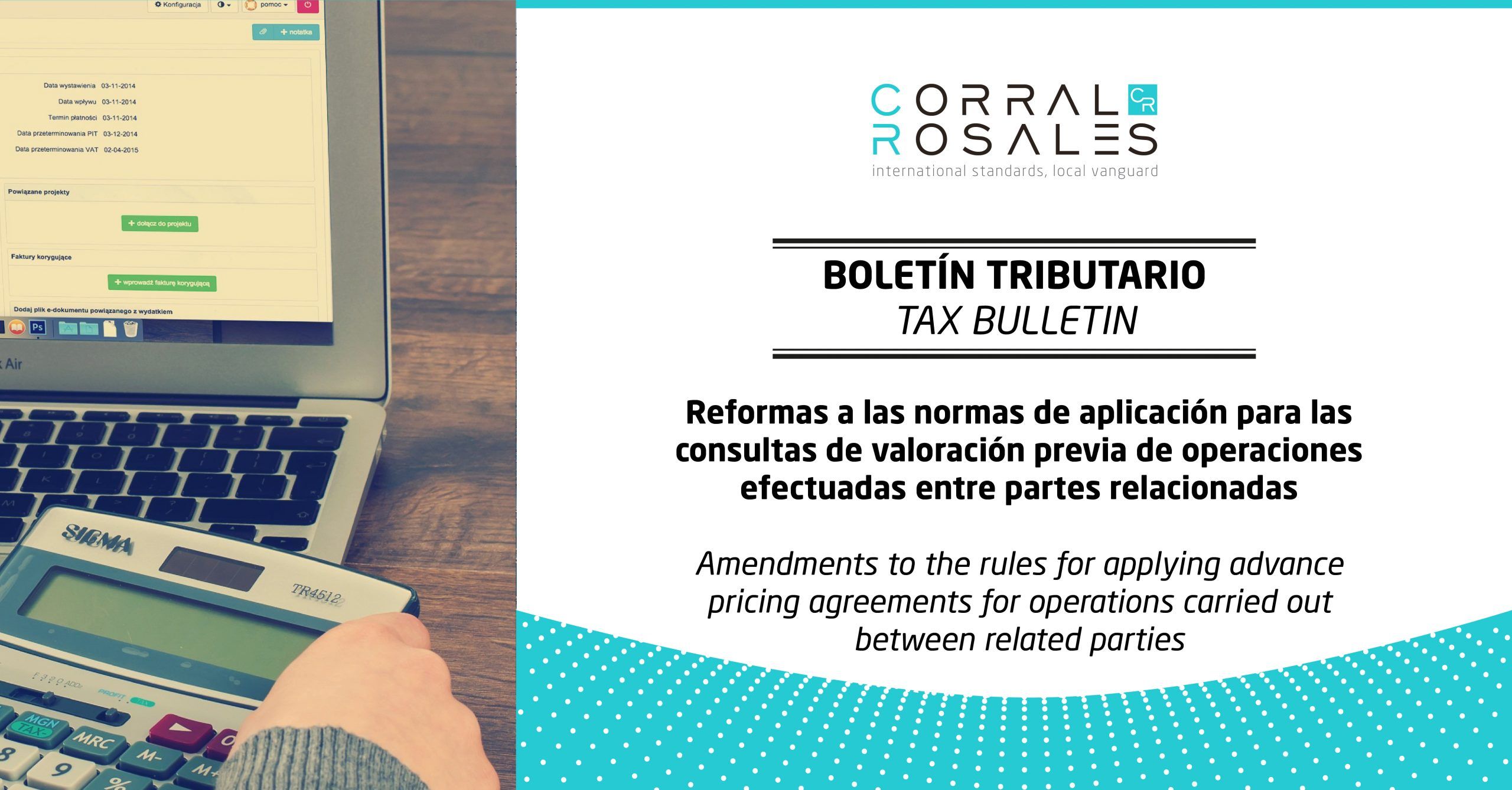Do you want to receive our newsletters with information like the one you just read?
Click here and subscribe.
Suspension of deadlines in tax matters


Do you want to receive our newsletters with information like the one you just read?
Click here and subscribe.

In 2015 the fixed-term employment agreement, which allowed the hiring of employees for one-or two-years, was repealed from the Labor Code. As a result, the open-term agreement became the most widespread agreement for employment relationships covered by the Labor Code.
The open-term employment agreement grants the employee a high degree of stability, since it protects him/her in the event of unilateral termination and grants him/her the right to the payment of significant severance packages.
The pandemic caused by Covid-19, and its strong impact on the Ecuadorian labor market, made it necessary for the government to regulate new contractual mechanisms that make the hiring of employees more flexible, that adjust to the reality of each company and guarantee employment rights.
Since March 2020, the following types of agreements have been regulated: (i) agreement for work or services within the core business; (ii) emerging employment agreement; (iii) employment agreement for productive sectors, among others.
This article analyzes the employment agreement for productive sectors, also known as “productive employment agreement”, regulated by the Labor Ministry on October 30, 2020, through Ministerial Agreement MDT-2020-220. The regulation seeks to promote job creation in these sectors through a mechanism that allows them to cover the different needs of their activity.
Pursuant to Article 2 of the Organic Code of Production, Commerce and Investment (“COPCI”): “Productive activity shall be considered as the process by which human activity transforms inputs into lawful, socially necessary and environmentally sustainable goods and services, including commercial and other activities that generate added value.“
As a consequence, this agreement may be implemented by companies whose purpose or activity is (i) to transform inputs into lawful goods and services; (ii) to generate commercial activities; and/or (iii) to generate added value.
The productive employment agreement subjects employment relationships to the following conditions:
The employment relationship will be terminated upon completion of the work, the service or the established term, without the need of any other formality. The employer must pay the employee the proportional amounts corresponding to the thirteenth and fourteenth remunerations and vacations, without the payment of a resignation bonus or severance payment for unfair dismissal.
If at the end of the agreed term the employment relationship continues, the agreement becomes an open-termeagreement.
In conclusion, the productive employment agreement is a flexible employment mechanism, since it allows to dynamize the labor market and with it the country´s economy. In turn, employers can hire employees in compliance with employment obligations, adjusting to their needs and without generating additional costs upon termination of the employment relationship.
Marta Gisela Villagómez
Associate at CorralRosales
mvillagomez@corralrosales.com

DATE: 20-04-2021
MEDIA: Enfoque
Our firm, CorralRosales, reappears in the media as one of the renowned law firms in Ecuador. This time, Enfoque Magazine publishes an article on the legal firms that focus on the traits most required by companies and individuals when hiring a legal service, such as proven experience, track record, good reputation, and knowledge of the sector. The article dedicates a few lines to CorralRosales in these areas.
With more than 40 years in the market and extensive experience in areas like aeronautical, banking and financial, foreign trade, corporate, public procurement, commercial, competition, mergers and acquisitions, labor, dispute resolution, intellectual property, data protection, and tax and customs, CorralRosales has appeared this year in the most prestigious rankings of international directories, such as Chambers & Partners, Legal 500, and IFLR100. We have also been part of the specialized publications IP Stars and WTR and referenced by Enfecto Magazine.
Our recognitions and good work in the workplace have allowed us to be part of the international network TAGLaw and the specialized association L2B Aviation.
In the words of our partner Xavier Rosales, “Our firm provided the constructor of the Quito Metro project as well as the contractor of the Puerto Bolivar port terminal sound advice.” “On other issues, such as intellectual property, we recently achieved the most important border measure in the history of the country when SENADI confirmed the adoption of said measure regarding the import of a container with more than 600,000 counterfeit products of different brands… Fighting piracy has become a way of life for us”, adds Rosales.
Enfoque Magazine also echoes the great team that makes up our firm. “CorralRosales has approximately 40 lawyers and five professional technicians in offices in Quito and Guayaquil,” they added.

Do you want to receive our newsletters with information like the one you just read?
Click here and subscribe.

Competition among companies and the business opportunities, ventures, technologies and constant expansion into new international markets mean that companies must protect that which allows them to stand out and differentiate themselves from their competitors, meaning their information, their “singularities”.
This information and singularities can be of various kinds, for example: financial statements, data, processes, know-how, a specific material, recipes, a product, a strategy, a skill, some knowledge, a supplier, or a formula. In general, any business information that is confidential, sensitive, private and that they wish to keep secret because of the importance it represents for the viability of the business.
Non-Disclosure Agreements (“NDAs”) are documents that allow the protection of company information. An NDA gives those who sign it the security of being able to share information in the different stages of the commercial relationship (pre-contractual, contractual and post-contractual). That is to say, in the event that in the pre-contractual stage, it is decided not to continue with the commercial relationship, the information that has been provided will be protected. The same applies when the contractual relationship ends.
The following are some of the elements that must be included in the NDA for it to be effective:
It is necessary to take into account that each case has its peculiarities and therefore the NDA must be designed for specific situations.
Darío Escobar
Associate at CorralRosales
descobar@corralrosales.com

DATE: 07-04-2021
MEDIA: Latin Lawyer
The prestigious Latin Lawyer media has published its latest report entitled: “Who Represents Latin America’s Biggest Companies?”. CorralRosales stands out among the five most popular firms in Ecuador employed by legal management offices in the last year.
In recent months, and because of the COVID-19 pandemic, law firms have had to adapt to a new and complex situation. They have seen their customer relationships and expectations change. During 2020, external lawyers have been an important help for the companies’ legal services. CorralRosales has undoubtedly adapted to the “new normal” and Latin Lawyer acknowledges this in its recent yearly report.
Our firm, CorralRosales, appears among the most popular Ecuadorian firms along with other large law offices. For this report, an investigation is carried out by LACCA (Latin America Corporate Counsel Association), based on the 100 firms with the highest income in the region. The initial sorting order considers income for the last full year, headquarters and their subsidiaries as a whole, news and articles on agreements and cases related to these firms.
CorralRosales is proud to appear in this renowned Latin Lawyer report. We thank all those who have made it possible for our firm to continue growing. We will keep working hard to provide our customers with the best service.
Thanks again. Congratulations team!
If you want to see the article (under registration), click here.

On those cases, that living wage compensation is applicable, employer shall pay it to employees no later than March 31st, 2021.
For living wage payment, “profit” shall be understood as the value declared by the employer as accounting profit deducting: (i) employees profit sharing, (ii) tax or advance payment fixed for the fiscal year declared, and (iii) statutory reserve.
Do you want to receive our newsletters with information like the one you just read?
Click here and subscribe.

The following is a summary of the changes introduced in each Regulation:
Regulation NAC-DGERCGC14-00001048
Information to be included of the parties and the transactions subject to consultation:
a. Names and surnames, company name, tax identification number, country of tax residence and income tax rate of the taxpayer and the parties with whom the operations covered by the consultation are carried out,
b. Detailed description of the operations, including among other elements, their nature, characteristics, amount in US dollars of the last three fiscal years, and the effect on the taxpayer’s income,
c. If the transaction is a service, documentation must be submitted to identify its invoicing, periodicity, and form of payment. In the case of royalties, in addition to the above, the intangible asset, its owner, administrator (if applicable), the method of valuation of the intangible asset and its calculation must be fully identified,
d. Comparability analysis according to the terms described in the tax legislation, including the following elements: i) characteristics of the operations; ii) analysis of the functions or activities performed, including the assets used and risks assumed; iii) contractual terms; iv) economic or market circumstances, and v) business strategies, both of the taxpayer and its related parties involved in the operations subject to consultation,
e. Details of the search performed in the respective databases to obtain the comparable to be used. The date on which the search was performed attaching the screenshots of the filters applied in the databases, the selection and discarding matrix of the comparable. The reasons for the selecting the proposed method, in the terms contemplated for the Integral Transfer Pricing Report,
f. Copies of existing contracts, agreements or arrangements entered into by the taxpayer with related or unrelated parties, which affect, directly or indirectly, the operations covered by the valuation consultation. If applicable, copies of the cost sharing agreements, including the cost sharing criteria,
g. Audited balance sheet and income statement of the taxpayer for the last tax year as of the date of filing the consultation, including the notes to the financial statements. If the taxpayer is not required to have audited financial statements, the balance sheet, income statement and accounting books at the highest level of detail,
h. Audited balance sheet and income statement of the taxpayer’s related parties subject to the analysis, including the notes to the financial statements. If the taxpayer’s related parties are not required to have audited financial statements, the balance sheet, income statement and accounting books at the highest level of detail,
i. Balance sheet and income statement of the companies proposed as comparable for the last fiscal year. This requirement is not applicable if the taxpayer proposes the Comparable Uncontrolled Price (CUP) Method, and
j. Any other relevant information, data, or documentation that the applicant considers necessary to support the methodological proposal for valuation of related party transactions.
Application report:
In the application report the taxpayer must include the following information:
a. The working papers in Excel including: the indicator (or price) of the taxpayer, the indicators (or prices) of the comparable, comparability adjustments, interquartile range, among others, depending on the methodology.
b. Description and reasoning of any particular fact or circumstance of the fiscal year analyzed that affected the valuation of the prices or financial margins of the analyzed party.
c. The taxpayer may not file a new report when the tax authority has initiated an assessment procedure.
Regulation NAC-DGERCGC15-00000571
Deadline for submitting the request:
The request may be filed until the last working day of February of the tax period in which the application of a higher limit of deductibility is intended. For fiscal year 2021, the request may be filed until the last business day of March.
Report of transfer pricing adjustments:
In the event that, upon application of the methodology approved, there is a transfer pricing adjustment, the taxpayer must report such on the income tax form.
Substitute tax returns:
If the increase of the deductibility limit is approved, the taxpayer is able to file substitute tax returns regarding the years which income tax returns was filed prior to the notification of the response to the request. The substitute tax return must be filed within 60 days after the notification of the response.
Do you want to receive our newsletters with information like the one you just read?
Click here and subscribe.

Labor Ministry through Ministerial Agreement MDT-2021-042, reformed the “General Guidelines for Internships”.
The Agreement establishes that students under a dual training modality may be considered for the mandatory percentage of interns.
Students under dual training are those whose professional training process occurs in educational environments and production or real services environments.
According to the Internship Law, for every 100 regular employees, employers are ordered to hire interns in a number equal to 4% of their employees who hold a professional degree. Consequently, the obligation to hire interns is subject to 2 conditions: (i) company has 100 or more employees; and (ii) at least 4% of such employees hold a professional degree.
Do you want to receive our newsletters with information like the one you just read?
Click here and subscribe.

The Court of Justice of the Andean Community, a supranational body with competence to ensure compliance with Andean regulations, their uniform application and interpretation in the member countries, in the exercise of its power to interpret Decision 486 of the Andean Community, has repeatedly defined the figure of a renowned trademark or also known as highly renowned. Thus, it has expressly said that: “The notorious trademark regulated in Decision 486, which we can call an Andean notorious trademark, is that which is notorious in any member country of the Andean Community (…). The renowned trademark, for its part, is not regulated in Decision 486, but due to its nature, it receives special protection in all four member countries. “[1] Departing from the interpretation of the Andean Court, the National Service of Intellectual Rights (SENADI), in an appeal resolution, expressly ignored the existence of this figure, arguing that it is not specifically provided for in the Andean regulations.
The renowned trademark, whose special protection has been repeatedly recognized by the Court of Justice of the Andean Community, presupposes its knowledge by not only the specific consumers of the product or service in question, but that this level of knowledge is extended to the general public, even to those who do not consume the products or services protected by the trademark. The special protection on this type of trademarks seeks to prevent third parties’ illicit use of the prestige they possess.
An example of the special protection that the Andean regime grants to highly renowned trademarks is shown in the evidentiary field. Thus, it has been expressly established through numerous preliminary rulings that the renowned trademark does not need to be proven, since it is comparable to what is commonly known as a well-known fact.
Although this special protection is not expressly regulated in Decision 486 of the Andean Community or in the Organic Code of the Social Economy of Knowledge, Creativity and Innovation, as it has been expressly recognized by the Court of Justice of the Andean Community, through preliminary rulings, it forms an integral part of the Andean community law, to which Ecuador is subject to.
In the case at hand, a person applied for the registration of the trademark PIZZAS DEL VALLE[2], to protect the services of bars, cafes, restaurants, catering (international class 43 services). Against this request, a third party, owner of the DEL VALLE trademark, filed an opposition based on the similarities between the signs and the renowned nature of its trademark. In first instance, SENADI just focused on comparing products and services, and concluded that the trademark applied for was registrable. There was no pronouncement on the highly renowned name argued by the opponent.
The opponent filed an appeal in which, among other arguments, he insisted on the absence of a pronouncement on the argument of the highly renowned trademark. On this issue, SENADI pointed out: “As for the appellant’s allegation regarding the highly renowned DEL VALLE trademarks, Community legislation does not recognize the existence of this figure, but only that of notoriety (…)”[3] Within the same decision, it also pointed out that: “this Court denotes the fact that once the file has been reviewed, it has not been verified that the holder has provided sufficient material to verify the veracity of his statements in accordance with the factors stipulated in the regulations, having only limited itself to pointing out that said trademarks are easily recognized by the general consumer. “
The aforementioned Resolution is contrary to the Andean regulations and specifically to the binding preliminary rulings of the Court of Justice of the Andean Community regarding the protection of trademarks in the member countries.
This type of decision confirms the need for the intellectual property offices of the member countries to implement permanent updating programs on the development of Andean community law. This would not only avoid damage to users due to an erroneous interpretation of the regulations and lack of application of binding rulings, but it would also raise the level of the decisions issued, so that, in addition to solving a conflict, they become a source of reference, for lawyers and users on intellectual property issues.
[1] Preliminary ruling 07-IP-2020 of May 8, 2020.
[2] Procedure SENADI-2018-61769 of August 29, 2018.
[3] Resolution No. OCDI-2020-1042 of December 23, 2020.
Katherine González H.
Associate at CorralRosales
katherine@corralrosales.com